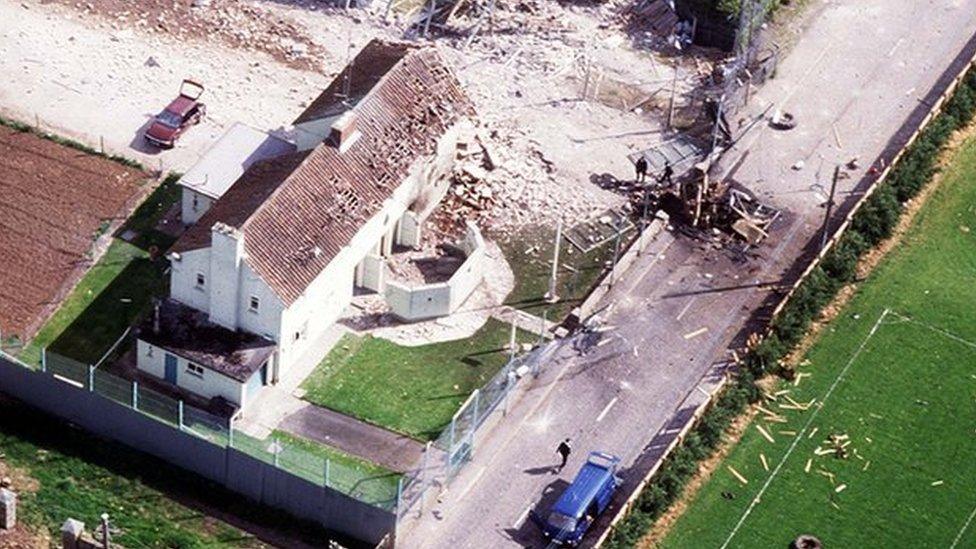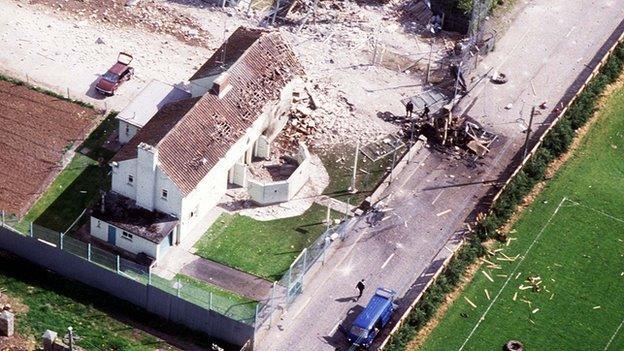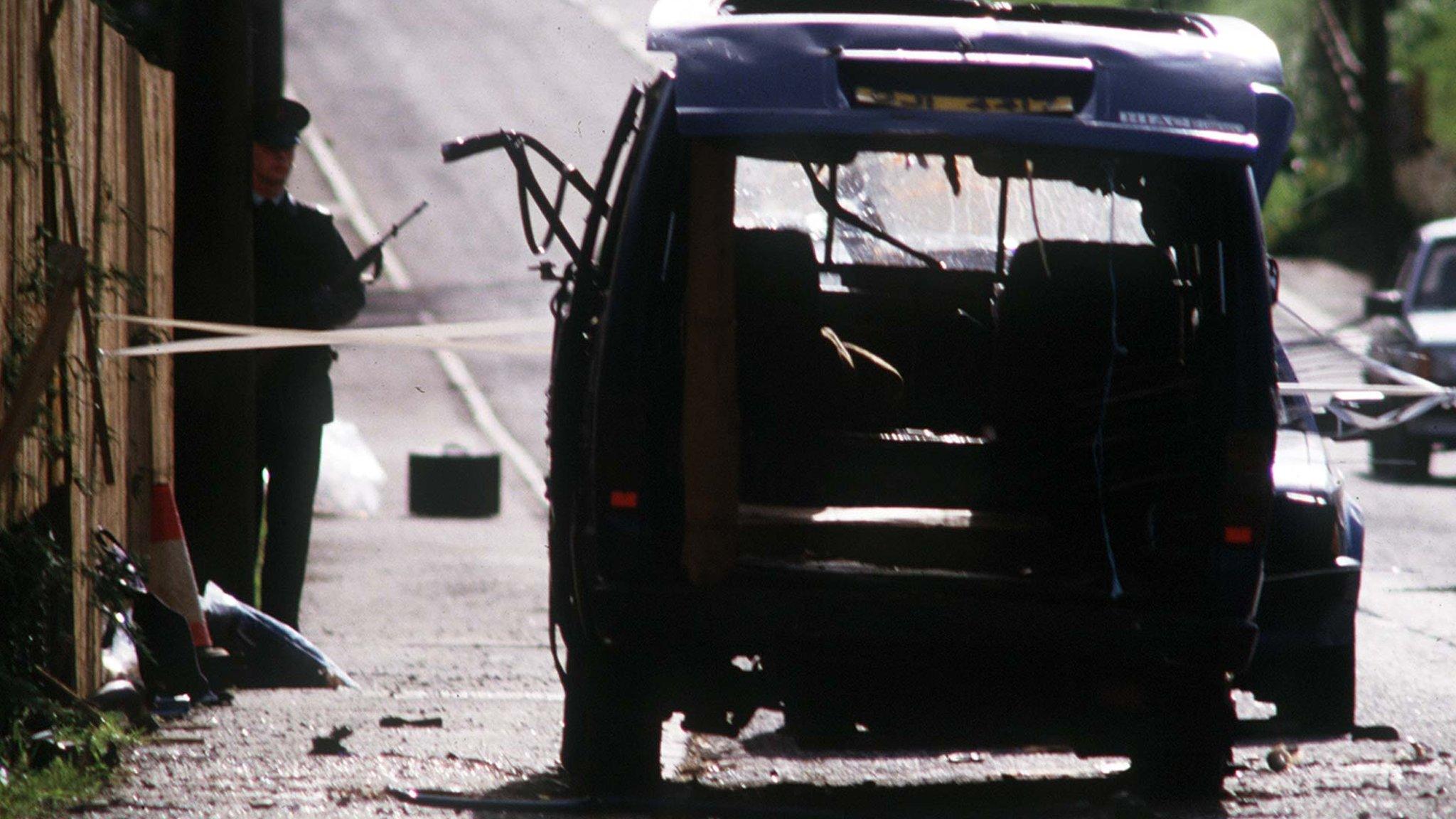Loughgall case: Almost 10m intelligence documents to be examined
- Published

Eight IRA men were shot dead by undercover soldiers in the incident in Loughgall
Police have to examine nearly 10m intelligence records to disclose documents for a legal action over the killing of eight IRA men, a court has heard.
The SAS opened fire on the men who were preparing a bomb and gun attack on a police station in Loughgall in 1987.
On Friday a judge in Belfast High Court warned against unacceptable further delay in providing sensitive material.
He said it could leave police with no answer to the lawsuit.
The father of one of those shot dead nearly 30 years ago had been seeking to have the PSNI's defence to his action dismissed at this stage for failing to hand over the requested material.
Although the judge refused to strike out the police defence, he cautioned that such an outcome may still happen in future if satisfactory progress is not made.
Proceedings were first issued against the Ministry of Defence over the ambush which inflicted the IRA's largest loss of life during the conflict.
Undercover soldiers killed eight members of the Provisionals' East Tyrone unit in May 1987 as they approached Loughgall RUC station in County Armagh with a bomb in a hijacked digger.
The IRA men shot were: Jim Lynagh, Padraig McKearney, Gerard O'Callaghan, Tony Gormley, Eugene Kelly, Patrick Kelly, Seamus Donnelly and Declan Arthurs.
A civilian, Anthony Hughes, was also killed and his brother badly wounded when they were caught up in the gunfire.
Lawyers representing the families of some of the IRA men who died claim the killings were unlawful.

The IRA's bomb exploded during the ambush
With the RUC's Mobile Support Unit also believed to have played a role in the operation, the PSNI was joined to the action in 2014 as the force's successor.
Proceedings brought in the name of Declan Arthurs' father, Patrick, sought to have the police defence dismissed due to the delay in producing documents for the damages claim.
The PSNI provided a list of non-sensitive material to the plaintiff in October last year.
It said the delay in disclosing sensitive files was because of difficulties in going through the volume of information to decide what was relevant.
Issues with servicing forthcoming coroners' inquests in the so-called legacy cases and the number of available staff were also cited.
Lawyers for Mr Arthurs argued that the Article 2 obligation within European Human Rights law for the state to act with diligence and promptness had been breached.
But the PSNI stressed the scale of the task involved.
In an affidavit setting out the difficulties in fulfilling its discovery obligations, Assistant Chief Constable Will Kerr stated searches will be required of electronic, microfiche and hard copy material in stores holding more than 9.5m intelligence records.
- Published19 March 2015

- Published25 September 2014

- Published5 September 2014
